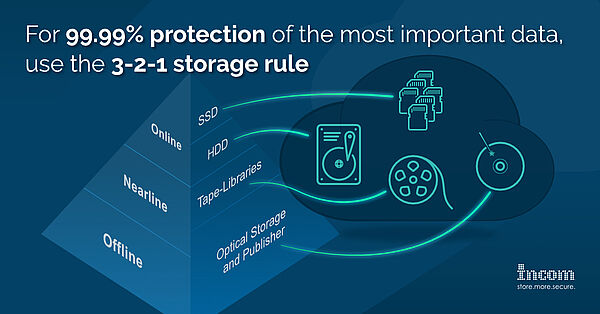Anyone who believes that data in the cloud floats in an unassailable space has just been proven wrong, because at the weekend one of the data centres of Europe's largest cloud provider OVH burned to the ground. More than 12,000 servers on five floors went up in flames, causing 3.6 million websites to go offline in one fell swoop, according to the FAZ.Many people think they have bought themselves a bit of security with the cloud. As a rule, the data there is protected against many eventualities in the best possible way. However, this does not exempt data owners from observing the classic IT security measures. The world is not perfect and one hard drive too many can always fail, a fire can break out or a heavy rain that lasts for days can overwhelm the water pumps and disrupt the power supply in the data centre. So it is not the first time that a system that was thought to be safe has failed completely due to a malfunction!
In France near Strasbourg, apparently still unexplained amounts of data were lost forever in the spectacular fire because many users threw all precautionary measures overboard and have now paid dearly for this with a total loss of their data due to cost-related recklessness.
The simple 3-2-1 rule has not lost its validity in the cloud age:
Make 3 copies, use 2 physical storage media and store one copy in a different location. This procedure is simple and yet very effective. The best backup is of no use if it burns down together with the primary storage. If you are afraid of the costs, you should always keep in mind what a total loss of data means for the company. In order to reduce costs - a mirrored cloud usually also means at least double the costs - it must be weighed very carefully which data is irreplaceable and needs additional protection. Costs can often be reduced by classifying the data according to the necessary availability and assigning it to primary, near or, in the case of important archive data, offline storage in the classic storage pyramid.
As a provider of optical storage systems, INCOM has been supplying highly reliable storage systems that have proven themselves for nearline and offline backup for decades.
